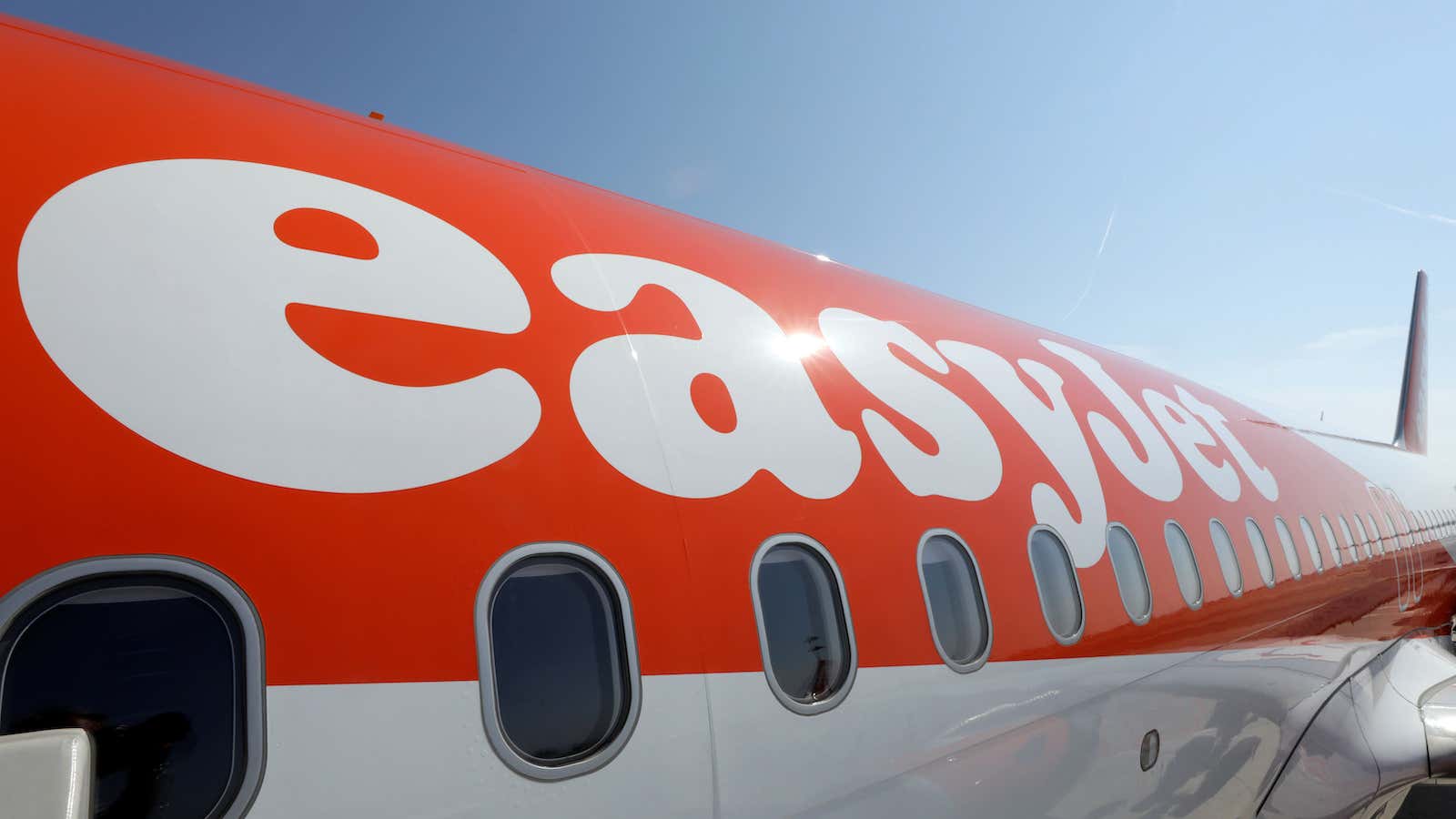“Electric flying is becoming a reality and we can now foresee a future that is not exclusively dependent on jet fuel.”
So says Johan Lundgren, CEO of the British low-cost airline easyJet, which wants electric airplanes flying in the sky by 2027. To get there, it has been partnering with US startup Wright Electric, which has been testing a two-seater plane. Lundgren told Reuters that they plan to test a nine-seat electric plane next year.
EasyJet wants electric planes to fly routes of about 500 km (310 miles) within the next 10 years—that would mean that flights from London to Amsterdam, Europe’s second busiest route, could become all-electric. (In the environmental stakes, though, that one-hour flight would compete more with trains than traditional planes, and the direct London-to-Amsterdam train is now as fast as 3 hr 44 mins.)
Airplanes have been trying to go greener for awhile; for Wired UK back in 2009, I wrote about Richard Branson’s efforts to get biofuels into Virgin Atlantic planes to mix with jetfuel, a process across the airline industry that is still quite slow-going. The Tesla-ization of the airplane is also taking some time—an Airbus E-Fan was the first electric plane to successfully fly across the English Channel last year but a Siemens electric-plane prototype crashed earlier this year, killing its pilot and passenger.
Wright’s aim is to quickly build a 150-seat plane to compete primarily with the Boeing 737 and Airbus 320, the short-haul planes from the world’s two biggest aircraft manufacturers.
